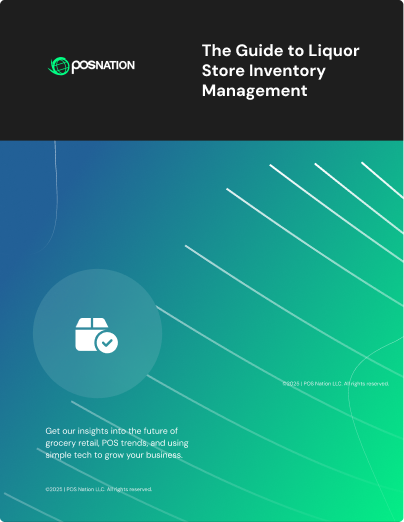New York is a people magnet.
In addition to the nearly 20 million people who live in New York, another 65 million people visit the state annually. From bustling restaurants and bars to neighborhood liquor stores and corner shops, selling alcohol is a multi-million dollar industry.
Your first step to opening a liquor store is getting a liquor license. While New York isn’t an alcohol control state, getting a liquor license is no easy feat. The process is complex and might take months — if you make mistakes or fill out the wrong forms, you’ll have to start back at square one.
This article details how much a liquor license costs in NY, how to apply for one, and the common pitfalls to avoid. Let’s get into it!
How Much Is a Liquor License in NY? What You Need to Know
There’s no easy answer to this question, but we’ll try and demystify the process as much as possible. First, there are two general types of liquor licenses: on-premises and off-premises.
On-premises liquor licenses are required for places where people can buy and drink alcohol on-site. These licenses are needed for hotels, clubs, wine taverns, restaurants, and live music venues.
Off-premises sales licenses allow people to purchase alcohol to take home and enjoy. Grocery, wine, liquor, and drug stores need off-premises licenses. However, a store with an in-store bar also needs an on-premises license.
Important Note: These are not the only categories of liquor licenses in New York. There are also separate licenses if you manufacture alcohol (e.g., a distillery or brewery), need a one-day event permit, or are an alcohol wholesaler.
These are the basics. There’s more!
Cost Breakdown of a Liquor License in NY
There are various costs associated with obtaining a liquor license. Costs depend on different county regulations, population sizes, and additional fees.
Off-premises License Costs
| License Type | Initial Fee | Cost Factors |
| Grocery Store Beer License | Approximately $500 | No. of locations |
| Drug Store Beer License | Approximately $600 | No. of locations |
| Liquor Store License | $1,800 to $4,300 | County, population |
| Wine Store License | $1,700 to $3,200 | County, population |
On-premises License Costs
|
License Type |
Initial Fee |
Cost Factors |
|
Tavern Wine License |
$4,000 to $6,800 |
County, population |
|
Restaurant Wine License |
$1,280 to $2,000 |
Location, population |
|
Hotel Liquor License |
Approximately $4,400 |
- |
|
Club Liquor License |
$800 to $2,000 |
Membership size |
|
Restaurant Brewer |
Approximately $3,000 to $6,000 |
County, |
Other Factors that Influence Costs and Fees
As you've seen, your area's population, location, and establishment type will all affect your liquor license's cost. Fees are typically higher in areas with a greater population and for establishments selling more alcohol.
Remember to factor in additional fees and renewal costs! Most license types require filing fees between $100 and $200. In addition, you'll have to renew your license periodically (usually once every one to three years). Renewal fees are typically similar to the initial license fee.
How To Apply for a Liquor License in New York
To make things easier, we’ve put together a quick step-by-step guide on how to apply for a liquor license in New York.
Step 1: Figure Out What License You Need
In addition to on and off-premises licenses, there are different subcategories if you sell beer, beer and wine, or liquor. If you apply for the wrong license type, your only recourse will be to restart the whole application license.
For example, if you’re opening a liquor store, you’ll need an L-222 license (liquor off-premises). A grocery store, on the other hand, cannot sell liquor and will need to apply for different licenses depending on whether they plan to sell only beer (A-122) or beer and wine (AX-128).
Also, be sure you meet the requirements of your chosen license type. For example, for an off-premises license, you need to be over 21, a U.S. citizen, and not hold any interest in a wholesale, manufacturing, or importing business.
Step 2: Get Your Documents Together
For a liquor store, you’ll need the following documents:
- Certificate of Authority to prove you’re registered to collect sales tax
- Registration documents
- A Federal Employer Identification Number (EIN)
- A lease or deed for your location
- A diagram of the premises
- A personal questionnaire
- 30-day advanced notice to municipal/community board
- The Liquor Store License Application Form from the NYSLA website
- Background checks for owners and partners
Important Note: This is not a complete list of documents, and some jurisdictions might require additional paperwork. Make sure to check in with both the NYSLA and your local government.
Step 3: Check Your Zoning
According to the 200-foot rule, specific licenses are not granted if the location is within 200 feet of a school, church, synagogue, or other places of worship. This does not apply if you got your license before the school or place of worship was built.
Also, no more than four licensed liquor stores can exist within 500 feet of each other. That said, this rule is more flexible, and it’s possible to apply for an exception, especially in more crowded neighborhoods.
Step 4: Fill Out and Send Your Application
It's time to apply once you’ve verified your zoning and gathered the necessary documents.
Go to the NYSLA website and fill out the application. Be thorough and accurate. Key sections include business information, ownership and location details, alcohol sales plans, and operating hours.
Send your application and fees to the NYSLA. This includes the initial license fee, filing fee, and other fees specific to your application.
This is the stage to take a deep breath and double-check everything. Be thorough. Have someone proofread your application — if you get something wrong, your application might be rejected or delayed.
Look at the tutorial on the SLA website for a full breakdown of the application process.
Step 5: Play the Waiting Game
The NYSLA will review your application and might conduct some additional inspections or investigations. Sometimes, you may be required to attend a hearing or provide further information.
If your application is approved, you'll receive your liquor license and can start operating!
As of 2025, the state has also expanded the issuance of temporary retail permits to help businesses get up and running while waiting for the full license.
It’s essential to apply for a liquor license in New York well in advance. The current wait time is between 22 and 26 weeks (approximately 5 and 7 months). If your application has problems, that timeline can balloon.
Ensuring Compliance and Avoiding Pitfalls
Staying compliant with NY state laws and regulations is crucial to maintaining your license, avoiding fines and penalties, and protecting your reputation. It’s easy to make mistakes. You might overlook local laws or restrictions, such as zoning, operating hours, or signage regulations. This is why it’s crucial to be thorough and accurate in your application.
Selling to minors is a violation. It’s essential to train your staff on proper ID checks. You can also use your point of sale (POS) system — some POS solutions come with age verification features.
Lastly, in order to comply with reporting requirements and demonstrate your commitment to responsible business practices, you must maintain accurate records of all your transactions, invoices, and inventory.
Recent Updates to New York Liquor Laws (2025)
In 2025, Governor Hochul and the NYSLA announced several updates to New York’s ABC laws. The highlights of these proposed updates include:
- Allowing one-day permits for liquor sales (instead of just beer and wine)
- Creating temporary permits for alcohol wholesalers
- No longer requiring wine and liquor stores to be at street level
- Allowing liquor sales in movie theaters
- Extending “to-go” drink sales for an additional five years
- Can now apply for a license and notify their municipality simultaneously
- Outdoor catering permits for alcohol sales in the hospitality industry
- Extended temporary permits for alcohol retailers
According to SLA chair Lily Fan, these changes aim to “support the modernization effort” of state liquor laws and “help members of our industry operate better.”
New York has some of the oldest liquor laws in the book, and hopefully, these updates will continue to make the process less complex for liquor store owners.
Getting Your NY Liquor License Is Only the First Step
The cost of a New York liquor license varies, and the process can be complex. Remember, take your time, and be thorough. Make checking for licensing mistakes and potential zoning issues part of your liquor store business plan to ensure the process is as smooth as possible.
Sending off the proper paperwork and getting your license is only the first step. A lot more goes into managing a successful New York liquor store.
Schedule a demo to see how POS Nation’s liquor store software can significantly streamline your daily tasks, cut overhead costs, and increase customer satisfaction.







 by Brian Sullivan
by Brian Sullivan


 by Cort Ouzts
by Cort Ouzts
